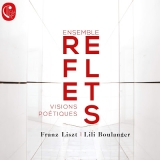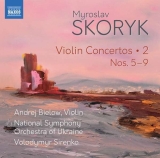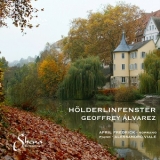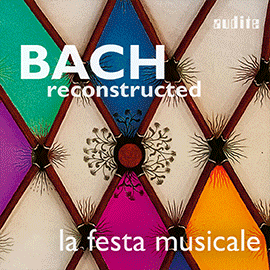The Orchestre de la Suisse Romande returns to Victoria Hall with a series of eight free concerts during the month of June. The concerts will last one hour and without intermission, and the number of spectators is limited to 250. The free concerts, open to all, are made possible by numerous donations and the support of a generous patron. Read More →
Die Deutsche Oper Berlin plant eine Neuproduktion von Richard Wagners Das Rheingold in der Kammerfassung des britischen Komponisten Jonathan Dove in einer halbszenischen Version. Dabei treten 22 Musiker und zwölf Sänger unter der Leitung von Generalmusikdirektor Donald Runnicles auf. Gespielt wird vor rund 200 Zuschauern auf dem Parkdeck des Opernhauses. Premiere ist am 12. Juni.
Diese Strauss-Aufnahmen aus Singapore beginnen mit einer feurigen und dramatischen Interpretation der noch von Liszt beeinflussten Tondichtung Macbeth, die noch nicht ganz die Qualität der späteren Werke hat (sie trägt die Opuszahl 23 nur, weil Strauss das Werk später revidierte). Mithin braucht sie nicht unbedingt diesen typischen Strauss-Klang, den das Orchester aus Singapore dann auch in Tod und Verklärung des kompositionstechnisch viel weiter entwickelten Strauss nicht erreicht. Read More →
Das Ensemble Reflets hat sein neues Album mit Kompositionen von Franz Liszt und Lili Boulanger mit Visions Poétiques betitelt. Die Trois Sonnets de Pétrarque hat Liszt selber für Klavier bez. für Klavier und Gesang herausgegeben. Die französisch-kanadische Pianistin Marie-Laure Boulanger hat nun eine Bearbeitung für Sopran, Klavier, Flöte und Viola besorgt. Sie bringt neue Farben in die Musik und damit ganz klar Mehrwert. Read More →
Ms. Gritskova, Ms Prinz, Sergey Prokofiev is one of the most famous Russian composers of the 20th century. But he is hardly known as a composer of songs, at least not in Central Europe. Is there a neglect of Prokofiev’s songs in Russia as well, or is this primarily a non-Russian phenomenon and then perhaps mainly due to the language barrier?
The Lied does not play a central role in Prokofiev’s oeuvre, although there are some fantastic jewels among his songs, and, by working on this genre, he was able to refine the lyrical qualities of his musical language. Even in Russia, the songs are not performed as often as Prokofiev’s piano or orchestral works or songs by classical Russian composers, like Tchaikovsky and Rachmaninov. Read More →
On the occasion of Beethoven’s 250th birthday, the Beethoven Jubiläums GmbH and the UN Climate Change Secretariat have launched the Beethoven Pastoral Project to call on creative people around the world to be inspired by Beethoven’s 6th Symphony (Pastoral) and set an example for climate protection. Read More →
Ukrainian composer Myroslav Skoryk died yesterday, 1 June, at the age of 81. He was born in Lviv, Ukraine, in 1928. In 1947 Skoryk’s family were deported to Siberia, where Myroslav grew up: they did not return to Lviv until 1955. Then, Skoryk studied at the Lviv Conservatory and started composing. In 1960, he continued his studies at the Moscow Conservatory with Dmitri Kabalevsky. Read More →
The Metropolitan Opera in New York, which has been dark since mid-March due to the health crisis, said it was planning a shortened season 2020/21, and cancelled all of the fall performances. The new season should start on December 31 instead of September. Several new productions have been postponed to future seasons.
Nach der CD mit den ersten vier der Violinkonzerte des ukrainischen Komponisten Myroslav Skoryk (1938-2020), hat Andrej Bielow nun auch die restlichen fünf eingespielt. Sie sind alle einsätzig und dauern, wie ihre Vorgänger, um die Viertelstunde. Einmal mehr bewundern wir die Einfallskraft dieses Komponisten und die narrative Tonmalerei der fünf Konzerte. Read More →
Nach Wanderjahren, die auch mit seiner bis heute ungeklärten geistigen Verfassung zu tun haben können, verbrachte Friedrich Hölderlin seine zweite Lebenshälfte im sogenannten Turmzimmer. Dieses Gemach im Hause der Familie Zimmer direkt am Neckar in Tübingen ermöglichte ihm den Blick auf den Fluss. Hölderlins Bedeutung als Dichter beruht vor allem auf seinem lyrischen Werk, in dem sich vor allem Hymnen, Oden und Elegien finden. Read More →

























